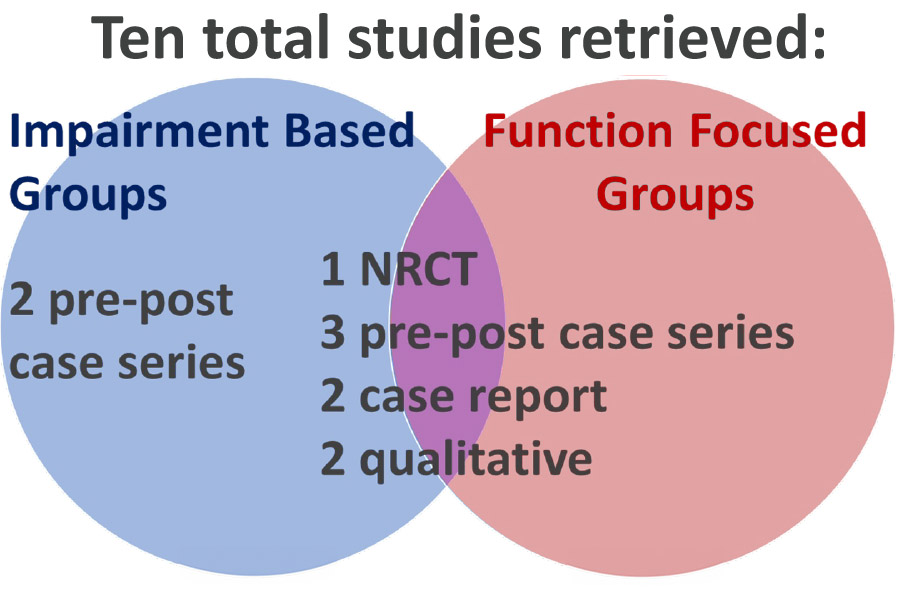Primary Progressive Aphasia (PPA) is a language-led dementia that results in progressive speech and language deterioration. Speech pathologists often see people with PPA one-on-one - but we wanted to look at the evidence for groups.
Summary of findings
We reviewed the literature to examine:
The literature on speech and language therapy group interventions for PPA shows promise of positive effects on communication function and psychosocial wellbeing of both people with PPA and their care partners 👍.
Speech and language therapists can consider these published interventions when designing and implementing similar groups, but more robust evidence is required to confirm the relative effectiveness 🔍.
A small number of studies (n=3) explored groups with mixed aetiologies.
Experiences were positive, but specific education on different aphasia types and individual participants’ resilience and openness were suggested to have contributed.
Future studies need to investigate the effectiveness and parameters of groups with mixed diagnoses from the viewpoint of people with PPA and their care partners, as well as the impact on other group members.
In our paper we have summarised a range of group designs for PPA.
